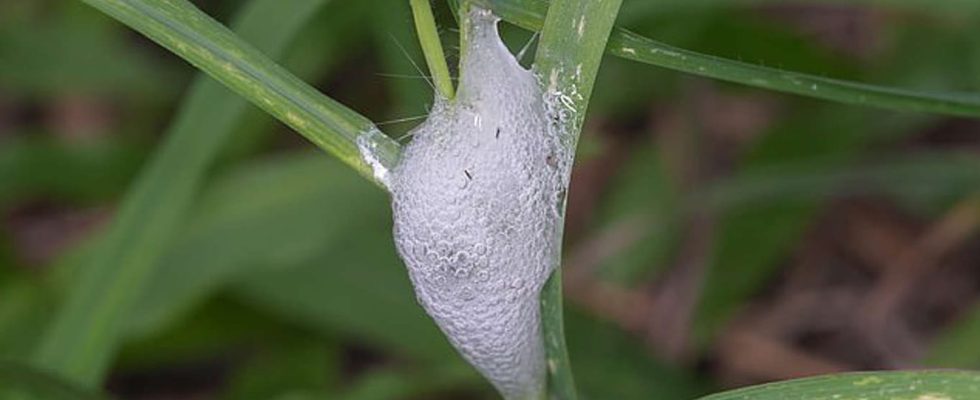Gardeners should be alert to any ‘moss’ they see in their garden. It is appearing on plants this summer and could potentially be toxic to your garden.
As the warmer weather encourages us to spend more time outdoors, gardeners should remain vigilant for a small ball of moss that may appear on the foliage, which they should avoid touching. These little moss excretions, called scum, are produced by an insect called the cercopis. The insect, sucking sap from a plant for food, covers itself with a ball of moss for protection, which is often found on plants and grass.
However, scientists have previously expressed concern that spittlebugs could be a vector for a deadly plant disease called Xylella. It can contaminate a large number of plant species and there is no treatment to prevent plant dieback. It is the cause of very significant decline in Californian vineyards for example and on olive trees in Puglia in Italy, and therefore it can cause a very significant impact.
It was detected in 2013 in Europe, in Italy then in Spain, France and Portugal. The presence of the Xylella fastidiosa bacterium was detected for the first time in France, in October 2015, on myrtle-leaved milkwort plants in southern Corsica and in the Provence-Alpes Côte d’Azur region. In 2020, it was detected in Occitania. Its introduction and dissemination are prohibited on European territory.
When Xylella is detected, strict measures are taken to prevent its spread, as it has the potential to decimate plant species over a large area in France. The control measures are specified in a European regulation which is implemented by the regional plant protection services. They will uproot plants susceptible to the bacteria within 50 meters around the contaminated plant, set up enhanced surveillance in the demarcated areas and control the movement of plants susceptible to the bacteria.
The scum of the cercopis must therefore be particularly monitored. The insect is usually active from late May to late June, which means that’s the peak time for sightings right now. The Ministry of Agriculture has set up a page dedicated to the problem of Xylella fastidiosa on its website.
